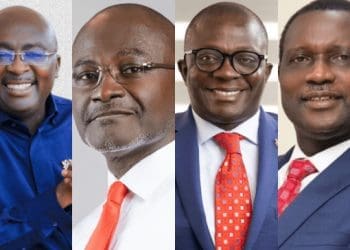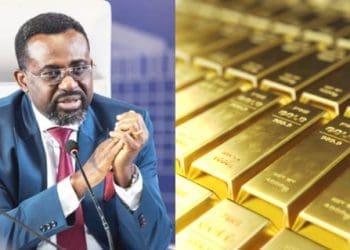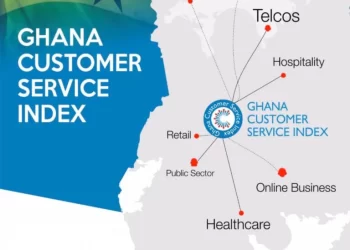President John Dramani Mahama has cautioned world leaders that despite its promise, the internet, social media platforms, and Artificial Intelligence (AI) are increasingly isolating societies rather than uniting them.
Addressing the 80th Session of the United Nations General Assembly in New York, he argued that technology often offers only the illusion of connectivity, reinforcing echo chambers instead of broadening perspectives.
“We are served alternative facts and manipulated images, making it easier to disseminate disinformation and sow seeds of division,” he said.
According to him, algorithms today ensure that people are fed more of the same ideas, rather than being exposed to new insights and diverse perspectives.
President Mahama likened the United Nations to the ancient “town square” of villages and cities, once a place where citizens gathered for celebrations, meetings, and trials.
He stressed that the UN must protect this unique space that brings nations together at a time when technology erodes human interaction and community building.
Climate refugees and global injustice
Turning to one of the most pressing issues of the century, President Mahama told Western leaders that the migrants they complain about are not opportunistic intruders but “climate refugees.”
He accused the Global North of bearing responsibility for the crisis, noting that it emits 75% more greenhouse gases than the Global South, which suffers the harshest consequences of climate change without adequate resources to respond.
“So, when the desert encroaches and our villages and towns become unliveable, we are forced to flee,” Mahama said.
He disclosed that twelve million people have already been displaced by climate change, a number the global community must address with the same urgency it showed in assisting refugees from Ukraine.
The human face of migration
To dismantle stereotypes surrounding migration, Mahama cited examples of Africans and children of African migrants who have made significant contributions abroad.
These included Judge Maame Ewusi-Mensah Frimpong, the first Black woman to serve on California’s federal district courts; Dr. Peter Bossman, who became the first Black mayor in Slovenia and Eastern Europe; the Ghanaian-Norwegian designer T-Michael; and the late Kofi Annan, former UN Secretary-General and Nobel Peace Prize laureate.
“These are not invaders or criminals,” Mahama declared. “They are people who have brought great distinction to the countries they call home.” He warned against normalising cruelty, hatred, xenophobia, and racism, insisting that the full truth of migration must be told.
Africa as a catalyst for change
President Mahama highlighted Africa’s role as a catalyst for human potential, systemic reform, and ecological stability.
He pointed to Ghana’s 24-Hour Economy Initiative as proof that African nations are willing to transform their economies and embrace innovation.
However, he stressed that centuries of racism, colonialism, and imperialism continue to cloud perceptions of Africa.
He called on the UN to recalibrate its mission to reflect today’s realities, noting that the organisation has expanded nearly fourfold in membership since its founding but has not adapted its structures accordingly.
UN reform and global representation
President Mahama criticised the outdated UN charter, which grants disproportionate power to a few nations.
“If the UN truly believed in the sovereign equality of all its members, then Africa—with its numerous states—would already hold a permanent seat on the Security Council,” he argued.
Citing Nelson Mandela’s call three decades ago for reforms, Mahama pressed for an African permanent seat with veto power and a mechanism to challenge existing veto decisions.
He warned that the status quo allows a handful of nations to exercise “almost totalitarian guardianship over the rest of the world.”
A reset of the global financial system
President Mahama went further, demanding not only Security Council reform but also a reset of the global financial architecture, which he said is “rigged against Africa.”
He urged greater African representation in multilateral financial institutions and called for sovereignty over natural resources to fund development in the face of declining humanitarian aid.
He also reiterated Ghana’s solidarity with Cuba, calling for an end to the decades-long blockade.
Quoting Dr. Kwame Nkrumah, he said, “We seek to be friends of all and enemies to none,” while reminding the Assembly of Cuba’s sacrifices during Africa’s fight against apartheid.
Urgent conflicts and historical wrongs
On global conflicts, Mahama described the ongoing situation in Gaza as unacceptable, rejecting the notion that a two-state solution would reward Hamas.
“If it looks like a duck, swims like a duck, and quacks like a duck, then it must be a duck,” he said bluntly, adding that the crimes in Gaza must stop.
He also drew attention to Sudan, which the UN itself has described as the world’s largest humanitarian crisis, and called for global recognition of the transatlantic slave trade as the greatest crime against humanity.
Ghana, he revealed, intends to introduce a motion for reparations at the UN, insisting that reparations are owed for slavery, colonisation, and the plunder of Africa’s natural and cultural wealth.
Protecting the global town square
President Mahama ended with a plea for unity, stressing that the United Nations remains the modern world’s “town square.”
In a world dominated by AI, misinformation, and fractured communication, he said, the UN must remain a beacon of collective decision-making and justice.
“It has never been more critical for us to protect this one space that brings and holds the world’s nations together as a community,” he concluded.












